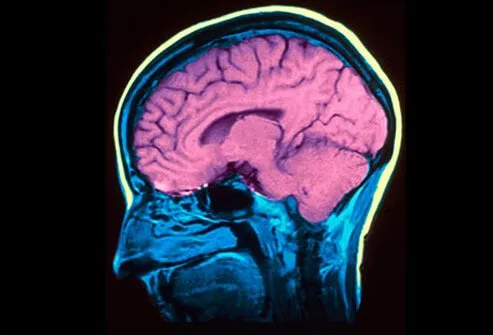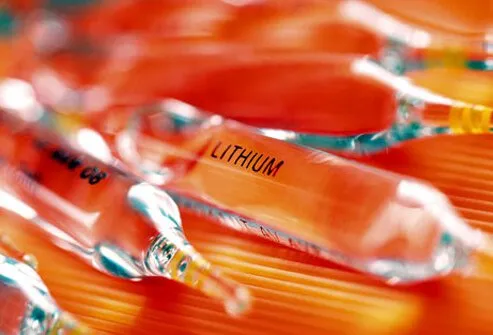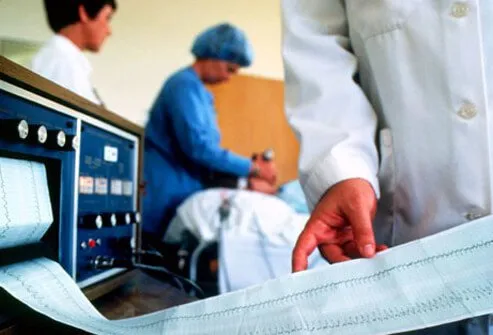Bipolar Disorder: What Is It?

Bipolar disorder, formerly called manic depression, is a mental illness that involves the sufferer having at least one manic (overly excited or irritable mood) or nearly manic (hypomanic) episode. The mood swings of this condition can last for weeks at a time and cause significant work and relationship problems. This illness affects up to 5% of adults in the United States, afflicting men and women equally.
Depressive Phase Symptoms

The depressive symptoms that may be experienced in bipolar disorder are those of any major depressive episode, including significant sadness, irritability, hopelessness, and an increase or decrease in appetite, weight, or sleep. Bipolar depression can result in sufferers wanting, planning, or attempting to kill themselves or someone else.
Manic Phase Symptoms

The manic symptoms of bipolar disorder can include the sufferer having a grossly excessive sense of well-being or abilities, racing thoughts, decreased sleep, and speech that is rapid to the point of being hard to decipher. Manic individuals may also engage in unwise activities such as excessive sexual behaviors or spending.
Bipolar I vs. Bipolar II

In order to receive the diagnosis of bipolar I disorder, a person must experience at least one full-blown manic episode in their lifetime. Individuals with bipolar II disorder experience at least one hypomanic episode, in that they have symptoms less severe than fully manic symptoms.
Mixed Features

Many people with bipolar disorder also have mixed features associated with their mood swings. This involves experiencing symptoms of depression during manic or hypomanic episodes.
Causes of Bipolar Disorder

While no single cause of bipolar disorder has been identified, there are a number of factors that contribute to the development of this illness. Decreases in the activity of different parts of the brain have been observed when individuals with bipolar disorder are having depressive or manic episodes.
Bipolar Disorder: Who's at Risk?

The symptoms of bipolar disorder tend to have two peaks of when they begin: between 15 and 25 and from 45-54 years of age. Other risk factors for bipolar disorder include having a close family history of depression or bipolar disorder (mood disorder) or a family history of substance-abuse disorder. Life stressors such as abuse may also trigger the onset of bipolar disorder.
Bipolar Disorder and Daily Life

The symptoms of bipolar disorder can interfere with a person's ability to work, achieve in school, and maintain relationships. People with this disorder are also at risk for having other medical and mental-health problems.
Bipolar Disorder and Substance Abuse

Having bipolar disorder can increase the likelihood of the sufferer developing a substance-abuse problem from 22% to more than 50%. Some people with bipolar disorder may drink to numb their manic or depressive symptoms, a behavior often referred to as self-medicating.
Bipolar Disorder and Suicide

Up to 10% of people with bipolar disorder commit suicide, 10 times the risk of people who have no mental-health disorder. Possible signs someone is planning to commit suicide include giving away belongings and otherwise putting affairs in order. If you or a loved one has thoughts of suicide, immediately contact a suicide hotline at 1-800-SUICIDE (1-800-784-2433) and 1-800-273-TALK (1-800-273-8255). Anyone who has planned or attempted to commit suicide should immediately be taken to the closest hospital emergency room as this is a medical emergency.
Diagnosing Bipolar Disorder

When mental-health professionals assess a person for bipolar disorder, they gather a detailed history and conduct a mental-status examination. The history will explore the possibility that the person's symptoms are caused by a medical condition such as a neurological or endocrine problem, medication side effect, or exposure to a toxin. The professional will also seek to distinguish symptoms of bipolar disorder from other mental-health problems, such as a substance-use disorder, depression, anxiety, or schizophrenia.
Medications for Bipolar Disorder

Medications are an important and effective part of treating bipolar disorder and include mood stabilizers, antipsychotics, and antiseizure medications. All these medications have been found to help even out and prevent the mood swings suffered by people with bipolar disorder. Antidepressant medication may trigger mood swings in people with this disorder.
Talk Therapy for Bipolar Disorder

When done in conjunction with medication treatment, talk therapy (psychotherapy) can significantly help prevent the recurrence of depression or mania of bipolar disorder, as well as decrease the symptoms and problems caused by those symptoms when they do occur. Cognitive behavioral therapy seeks to help the individual change ways of thinking from self-defeating to more productive ways of thinking. Family-focused therapy uses mental-health education, improving communication, and problem-solving skills for the bipolar-disordered individual and their family.
Lifestyle Tips for Bipolar Disorder

As is the case with other mental disorders, good self-care is an essential part of getting optimal results from talk therapy and medications. People with bipolar disorder should work on getting at least eight hours of sleep per night, exercising regularly, maintaining good nutrition, and avoiding alcohol or drug abuse. When bipolar-disordered individuals learn their warning signs for the onset of a manic or depressive episode, they are more able to prevent full-blown mood swings.
Electroconvulsive Therapy (ECT)

Electroconvulsive therapy (ECT) can be a very effective treatment for any mood state of bipolar disorder (depressive, manic, or mixed) and involves inducing seizures by sending an electrical current through parts of the brain. ECT can bring relief of symptoms to people who have not received relief from psychotherapy or medications. It can also be an effective maintenance treatment, preventing mood swings from returning. Your doctors can help determine if ECT is a potential therapy for you.
Educating Friends and Family

Given the important role family members can play in the recovery and long-term progress of their loved ones with bipolar disorder, educating family members and helping them improve communication and problem-solving skills is an important part of improving the life of people with this disorder.
When Someone Needs Help

If you are concerned a family member or loved one may be suffering from bipolar disorder, speak openly with them and seek help from a trusted health-care professional. Often, educating your loved one that many people who have this disorder lead highly productive, satisfying lives with treatment can go a long way toward helping them accept help for themselves.
What Is Bipolar Disorder? Symptoms, Manic Episodes, Testing
This tool does not provide medical advice. See additional information: 
© 1996-2024 WebMD, LLC. All rights reserved.
